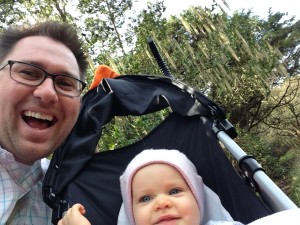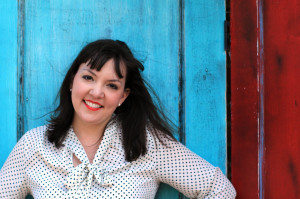Two years ago, I entered adulthood. Not by virtue of turning eighteen; I’d already done that. I found myself at thirty-one, untethered. Until then, I’d led a life of quiet habit and order, hoping that eventually I’d be recognized as a great talent. But I tired of waiting and so I quit my normal routine, church, and several lifelong friends.
There were now gaps in my weekly habits. I went around industriously filling them up by hanging out with people I hoped would become my friends, getting involved in bad romances, and spending money I didn’t have. I tried to get several people to marry me. Along the way I learned that the last thing that will endear you to someone is to suggest marriage in the first three weeks of a relationship.
My problems were threefold: I was not married (and badly wanted to be), I was a writer who did not write, and I was not in the kind of job I dreamed, when I was in college, that I’d have at thirty-one. Instead, I worked in a sleepy realty office, reading ebooks all day long, and dreaming of being the next Barbara Pym.
I tried to solve these problems by switching to a new job in downtown Hartford that promised a more lively environment, and moving back to my parents’ house. I’d spent the previous five years with roommates who married and moved regularly, which meant I always had to find a new place to live. Living with my parents again—in the basement no less—felt like a big step backwards. I continued seeing one of the well-intentioned but frightened men I was trying to convince to marry me.
But what had happened? Why had my life curdled and become so wretched? Why was I walking around in a desolate daze of dreariness?
Most days at at my new job, in the well-appointed office on the eleventh floor of a posh skyscraper, I forced back tears while balancing spreadsheets. My job performance suffered, something that had never happened before. I grew despondent.
I could not sleep, partially due to perpetually analyzing my life with its dearth of accomplishments and partially because I spent most of my non-work hours with the boyfriend I was afraid to leave alone for fear he’d have time to assess me and conclude we’d be better off apart.
I wanted peace, but I was heading toward an internal crisis of massive proportions. It was like drowning but not wanting to call attention to the shameful fact that I couldn’t swim.
Finally, in a fit of desperation, I told the boyfriend that I needed to be alone for good. I told my bosses I would start work an hour later in the mornings and make up for it in the evenings—I decided that time to read and write in the mornings was essential for my recovery. I began reading Madeleine L’Engle’s book Two-Part Invention, a memoir of her early artistic development and later marriage to her husband, the actor Hugh Franklin. I began writing in earnest. I began to listen to the advice of my worried parents asking me to sleep and eat more and go to writers workshops.
 The nascent grown-up in me began to move, struggling for breath and life.
The nascent grown-up in me began to move, struggling for breath and life.
I had tried to extend my adolescence for years: the naive expectation of what I thought life should be. I thought it’d be an easy, pain-free way toward accomplishment, like the stories of people getting discovered by a famous producer and becoming famous overnight.
I quietly put the adolescent away in a shopping bag I used to deliver used clothes to the thrift store. She would be happier companioning a younger person, anyway.
My grown-up was far more peaceful than the adolescent had been. Yet real peace was elusive for me. I think it is stated best by Gerard Manley Hopkins who wrote: “O surely, reaving Peace, my Lord should leave in lieu/ Some good!/ And so he does leave Patience exquisite,/ That plumes to Peace thereafter”. I clung to patience as a new adult. Peace could come later after patience laid its groundwork. Patience helped me start writing a book. Patience sat with me when loneliness made its frequent visits.
My grown-up showed me how to sit, to work, to choose to be alone, to be silent sometimes, to avoid bad relationships, to say “no thank you”. She showed me how to accept sleep as a friend and not a thief of time. To not get tipsy every time there was wine present. She showed me the promise of good work that only my hands could do.
****
 “The Grown-up” was written by Elena Shekleton. Elena lives in Denver with her husband, the artist Dan Sorensen. She is currently working on a novel and a book of fairy tale short stories. Elena loves hiking in the Rockies, and exploring the breweries and book shops in her city. Her apartment is now free of roaches.
“The Grown-up” was written by Elena Shekleton. Elena lives in Denver with her husband, the artist Dan Sorensen. She is currently working on a novel and a book of fairy tale short stories. Elena loves hiking in the Rockies, and exploring the breweries and book shops in her city. Her apartment is now free of roaches.



